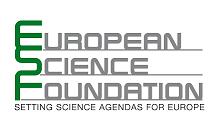Polaritonics: From Basic Research to Device Applications
Program
Program of the ESF Workshop on Polaritonics
Schedule:
Arrival - afternoon on Tuesday 20 March 2012
Meeting opens: 9.00 on Wednesday 21 March 2012
Meeting closes: 14.30 on Friday 23 March 2012
Departure - afternoon on Friday 23 March 2012
Main objectives of the Workshop:
Intensive studies of the strong – light matter coupling in semiconductor quantum microcavities have allowed to observe many fascinating fundamental effects (polariton lasing, polariton bistability and multistability, polariton superfluidity). Fundamental knowledge obtained has allowed to formulate new concept of polariton based coherent light sources, all-optical information processing systems, and THz sources and detectors. The idea of the workshop is to bring together researchers working in the area of polaritonics and neighbouring areas in order to discuss recent progress and construct a roadmap for the development of new concepts of polaritonic devices and its commercialisation.
Dr. Ana Helman (ESF Standing Committee for Physical and Engineering Sciences - PESC)
Presentation of the European Science Foundation (ESF)
List of speakers
Alexey Kavokin (Convener) - University of Southampton, UK
Alberto Amo - LPN-CNRS, France
-
Raphaël Butté - EPFL, Switzerland
Present status of polaritonic nonlinearities in planar III-nitride microcavities Marzena Szymanska - Universit of Warwick, UK
Spatial correlation functions & topological defects in polariton condensatesIvan Shelykh - Nanyang Technological University, Singapore; University of Iceland
Polariton- electron mixturesPavlos Savvidis - University of Crete, Greece
Marlene Glauser - EPFL, Switzerland
Natalia Berloff - University of Camdridge, UK
Universality in modelling pattern forming of polariton condensatesOlivia Pulci - University of Rome Tor Vergata, Italy
Universal infrared absorbance in graphene, silicene and germaneneGabriela Slavcheva - Imperial College London, UK
Model of the time-resolved photoluminescence from resonantly excited p-doped InAs/GaAs QDs Towards realistic modelling of a dotcavity systemAlberto Bramati - UPMC, France
Polaritons: quantum fluid phenomena and optoelectronics and applicationsNina Voronova - MEPhI, Moscow, Russia
On vortices and solitonsformation in polaritonBose condensateTim Liew - EPFL, Switzerland
Multimode entanglement in semiconductor microcavitiesGuilherme Tosi - University of Camdridge, UK
Paola Gori - CNR, Italy
Electronic and optical properties of graphene-and graphane-likeSiClayersSergey Andreev - CNRS, France
Thermodynamic model of the macroscopically ordered exciton stateAldo Di Carlo - University of Rome Tor Vergata, Italy
Mikhail Glazov - Ioffe Institute, S-Petersburg, Russia
Spin noise in quantum microcavitiesLaura Pilozzi - CNR, Italy
Polaritonic crystals: from optical response to Casimir effectFabio Liaci - Ioffe Institute, S-Petersburg, Russia
Electron Spin and Exciton Emission Polarization in Heterovalent Coupled Quantum Wells III-V / II-(Mn)-VI StucturesDaniele Sanvitto - Istituto Nanoscienza CNR, Italy
Polariton transistor: towards all-optical logics

